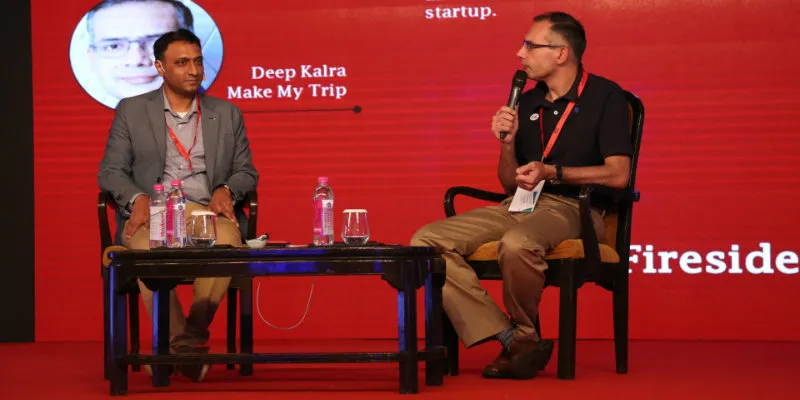Flipkart announces second innings with grocery; can it fight Amazon and Big Basket?

Flipkart CEO Kalyan Krishnamoorthy has said that the e-commerce marketplace is planning to get into the grocery segment. Kalyan divulged this at a TiE event in New Delhi while making his first public appearance since taking over as CEO in January. He, however, gave no specifics of the plan in terms of how and when.
“Yes, we will get into grocery... 80 percent of units bought in India is grocery, so we have to get into it,” a PTI report quoted him as saying.
Having conquered the mobile phone and fashion segments—in the latter they claim a 70 percent market share in alliance with Jabong and Myntra—Flipkart’s entry into the grocery sector is widely seen as a move to take on Amazon in the one category in which the US-based titan has established itself. In fact, Flipkart’s announcement comes at a time when talks are reportedly underway for online grocery market leader Big Basket's acquisition by Amazon India, which runs a similar service, ‘Amazon Pantry’, in 29 cities in the country.
Second round
In October 2015, Flipkart launched its own grocery delivery arm, ‘Nearby’, only to shut it down in February the following year. The reasons were obvious: online grocery demands a supply chain that is entirely different from the one needed for a horizontal marketplace. Also, their pilot was in Bengaluru, which was already the comfort zone of sector leaders Big Basket and Grofers.
But in its second innings, Flipkart will surely be more cautious. Now that 100 percent FDI has been allowed in food retail, Flipkart can afford to go in for an inventory model like Big Basket’s. Grofers, the hyperlocal leader in online grocery, has shifted to a 70 percent inventory model over the past year.
Flipkart recently launched its private label, Flipkart Smartbuy, an umbrella brand under which it will sell 50 categories, including consumer electronics, furniture, and fashion. But Kalyan has not specified yet whether the unicorn’s grocery venture will be private label or not.
Big Basket's CEO and Co-founder Hari Menon says that it's a good thing that more players are entering the online grocery space. He told YourStory,
“Grocery is a very large market. It's worth $450 billion. With more players, it will open up the addressable market much faster, and there is enough space for more players.”
Big Basket’s private labels are already present in about 1,200 kirana stores, besides on its website. They also sell through hotels, restaurants and cafes. Private labels account for 33-34 percent of the current revenue of Big Basket, and they are targeting 40 percent by 2017-end.
Last year, market research firm Research and Markets, in its E-Grocery Market – India report, stated that India’s online grocery market was the sixth largest in the world, and was among the fastest growing markets as well. It anticipated that the country’s e-grocery market would grow to as much as $20 billion by 2020.
In June 2016, the Central government permitted 100 percent FDI in food retail, a move that could benefit players like Big Basket, for whom 70 percent of private label items happen to be food.
Recently, the government said that it was considering permitting FDI in non-food items too in offline and online retail. The time has never been more opportune for e-commerce players to launch grocery services.
Now that Flipkart has raised $1.4 billion, more launches are expected from it. A few months ago, it was reported that Flipkart was planning to get into food delivery; that, however, never took shape. But now, Flipkart seems to be going all out in its competition with Amazon.
The company will have to be circumspect, however, as the market plays host to established players like Amazon, Big Basket, and Grofers, having felled practically every other major contender in the space including Peppertap and Local Banya last year and taxi aggregator Ola’s venture in the space, OlaCafe, the year before, within just a few months of its launch.







